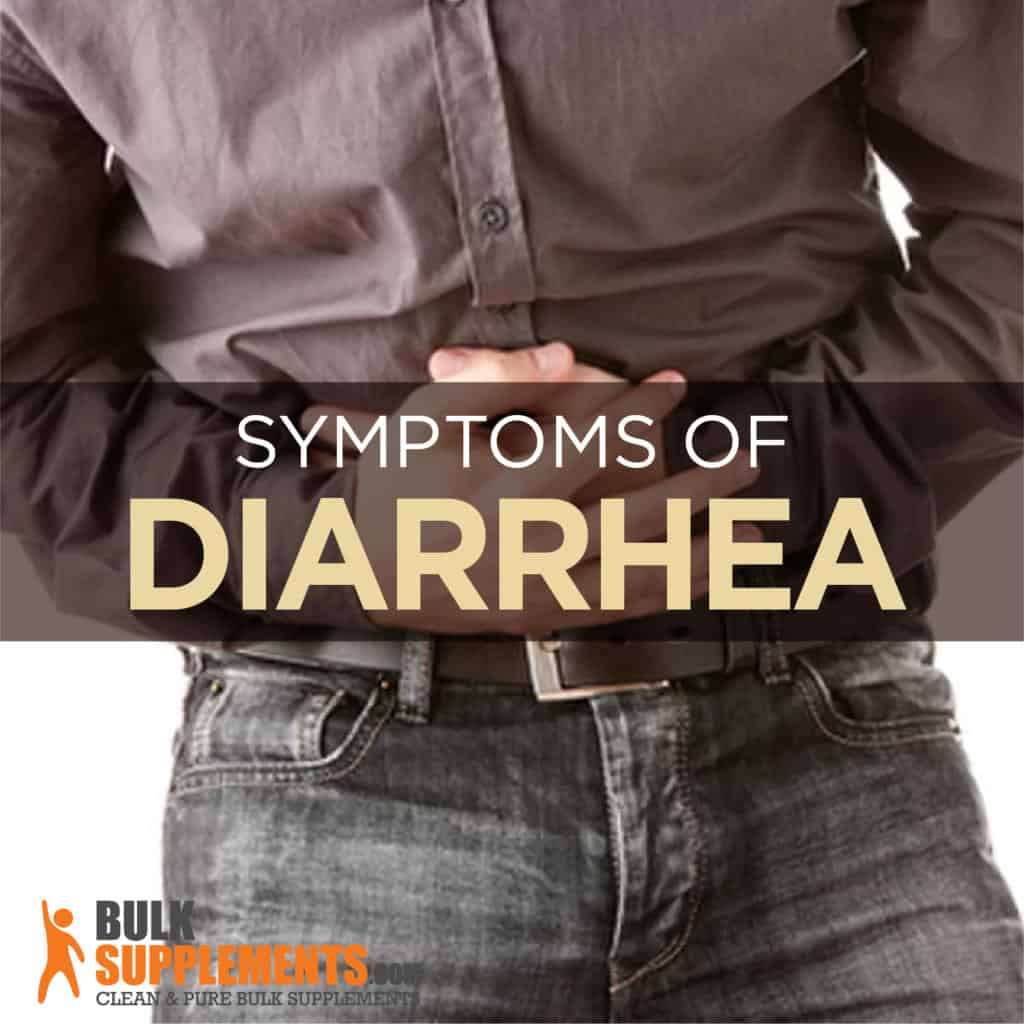What is Diarrhea?
Diarrhea is a common health complaint with mild to life-threatening symptoms. Approximately two million cases of diarrhea are reported around the world every year, and 1.9 million infants under the age of five die from it every year (x).
For most people, diarrhea is an acute condition caused by a bacterial or viral infection. Symptoms may include passing loose or watery stools three or more times per day, abdominal cramps and fever, in addition to an urgent need to have a bowel movement. Acute diarrhea typically only lasts a day or two and is best left to run its course. But if it lasts longer, it may indicate something more serious.
Chronic diarrhea may be continual or recurring, depending on the cause. Moreover, a wide range of problems may cause chronic diarrhea. You should seek medical attention if your condition lasts more than three or four weeks.
Diarrhea Symptoms
Although symptoms vary from one person to the next, the most common symptom is passing three or more watery or loose stools within 24 hours. Other symptoms may include:
- Nausea
- Urgent need to go to the bathroom
- Cramping
- Loss of control over bowel movements
If an infection causes it, other symptoms may also include:
- Fever and chills
- Vomiting
- Dizziness or lightheadedness
- Bloody stools
Causes of Diarrhea
Many things can cause acute diarrhea, including:
- Bacteria from contaminated food or water
- Viruses such as rotavirus, norovirus and the flu; in children, rotavirus is the most common cause.
- Parasites — tiny organisms from contaminated food or water
Causes of chronic diarrhea include:
- Antibiotics, antacids that contain magnesium and cancer drugs
- Food sensitivities and intolerances
- Diseases of the small intestine, colon or the stomach, such as Crohn’s disease
- Functional issues of the colon, such as irritable bowel syndrome (IBS)
- Microscopic colitis — persistent diarrhea affecting older adults
- Malabsorption syndrome and impaired digestive function
- Parasitic or bacterial infections from traveling
- Endocrine issues such as Addison’s disease
- Cancers of the gut
The most common causes of acute diarrhea in the U.S. are the bacteria campylobacter, salmonella, e.coli and shigella (x). Doctors sometimes can’t determine its cause, in which case they classify it as “functional.” In most cases, though, it will subside on its own in a day or two; medication and a doctor’s care are usually not necessary.
Treatments for Diarrhea
There are a number of ways to naturally treat diarrhea. However, treatments largely depend on what complications patients are experiencing.
Rehydration
If diarrhea causes dehydration, drinking fluids can alleviate symptoms. In severe cases, however, doctors may administer fluids intravenously.
Seniors and infants are the most susceptible to dehydration from diarrhea. Oral rehydration salts or solutions containing glucose and salt may be necessary. The small intestines absorb these solutions, which replace missing electrolytes. Rehydralyte and Oralyte are supplements effective for treating dehydration in children (x).
Antibiotics
Antibiotics can treat diarrhea caused by bacterial infections. However, some medications can cause diarrhea, too, in which case switching medications is necessary to treat it.
Antidiarrheal Medication
Over-the-counter medication may help alleviate symptoms:
- Bismuth subsalicylate, found in over-the-counter medications such as Pepto-Bismol, helps reduce bouts of diarrhea in adults and children. It may also help alleviate symptoms of travel-related diarrhea.
- Imodium or Loperamide help reduce the passing of stools an are both available over the counter.
Dietary Changes
According to nutritionists at the Stanford Cancer Center, nutritional changes may help alleviate diarrhea symptoms (x):
- Drink a minimum of one cup of liquid to replace lost fluids
- Sip clear sugar-free liquids
- Replace fluids by drinking in between meals
- Eat potassium-rich foods like potatoes and bananas
- Stick to sodium-rich foods
- Eat foods that are high in soluble fiber to help thicken stools
- Limit your intake of fried, creamy r sugary foods
- Decrease your intake of caffeinated drinks
- Avoid high-fructose foods
- Avoid dairy products
Are Probiotics Good Supplements for Colon Health?
There’s extensive research on the effects of probiotics on diarrhea (x). Probiotics may alleviate it in children and in those who travel frequently. Additionally, they may alleviate diarrhea caused by antibiotics and the bacterium Clostridium difficile.
A study published in the American Journal of Gastroenterology showed that probiotics helped study participants with Clostridium difficile–related diarrhea feel better faster (x). Moreover, probiotics have been shown to aid in the prevention of diarrhea (x).
The Bottom Line
Diarrhea is one of the most commonly reported illnesses in the world. However, it is preventable, treatable and in most cases, subsides on its own without the need for medical treatment.
Food, medication and even stress can cause diarrhea. But in some cases, its cause may not be known. In these cases, dietary changes and monitoring triggers could help to alleviate symptoms.
